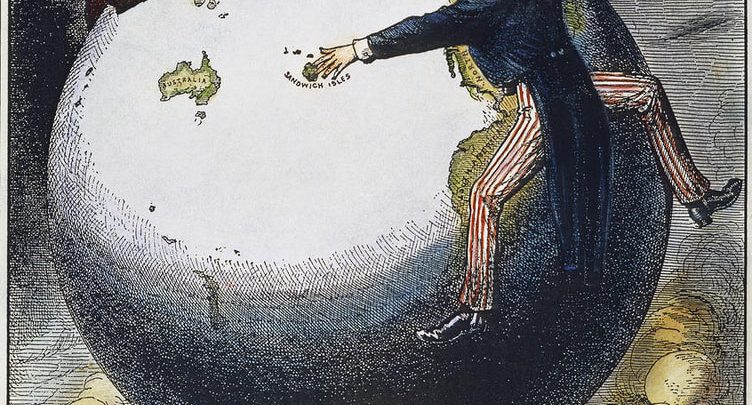Africa and Middle EastAllAllAllAsia and OceaniaEuropeOngoingOngoingOngoing
Sunset over the British Empire: The End of Imperialism
Global economic integration – and by proxy globalization – was a harsh reality for the rapidly disintegrating European powers after two economically exhausting world wars.

After World War II, the Unites States and the Soviet Union emerged as global superpowers. Global imperial forces such as the British, French and Japanese suffered devastating losses to their respective influences all around the globe, thus ending the age of Imperialism. The newly-formed independent nations experienced a long and difficult road ahead, and some have not yet fully recovered from their imperial legacies.
South East Asia, Success
South East Asia experienced arguably the most diverse imperial legacy, more than any other region in the world. The French capture of Saigon in 1859 began a French rule that spanned Annam, Tongkin, Laos and Cambodia. Along with their long rule over India, the British controlled Singapore, Burma and the Malay Peninsula. The Indonesian Archipelago was ruled by the Dutch East India Company and directly by the Dutch Government. Portugal occupied Timor as well as Malacca (which was taken over by the Dutch in 1641.) Spain governed the Philippines until its defeat by the US in the Spanish-American War, and then was occupied by the USA until its independence in 1946.
Today, these South East Asian nations achieved contemporary modernity through structural changes that came as a direct result of imperialism, colonialism and nationalism. The most successful of these globalized rebirths can be attributed to Singapore, whose progress to one of the world’s foremost economies is spectacular. The country’s policies of economic liberalism, in addition to strategic location and tolerance of multiculturalism
How is Africa Coping?
Africa experienced a colonial and imperial period unparalleled to any other continent. Because of its proximity to the “old world,” almost every European power scrambled for some sort of control over a territory, people or resource. Spain, Italy, Belgium, Germany, Portugal, France and Britain all developed colonies used to protect trade ambitions – the raw materials taken from Africa were used to tax other nations for trade and commerce.
While some countries gained their independence through force, others were granted independence in the wake of economic or political collapse of their European imperial power. The exploitation of Africa’s vast material resources did not bode well for the continent of Africa, as a series of terrible civil wars and economic despair has plagued the region since.
The Still-Turbulent Middle East
The Middle East has always been an interesting region regarding international influence and intervention. Seen as the passageway between the East and West, the primary British and French forces occupying and governing the region divided the Middle East into spheres of influence. The Sykes-Picot agreement of 1916 secretly gave Britain control of the area of the coastal strip of the Mediterranean Sea, River Jordan, Jordan and southern Iraq. The French retained control over southeastern Turkey, northern Iraq, Syria and Lebanon.
While the British and French empires eventually collapsed, the Soviet influence on the region extended well in to the 20th century. Purportedly, the Soviets were responsible for several intelligence-gathering expeditions, wars and holding off American forces from developing a strong foothold din the Middle East during the Cold War.


